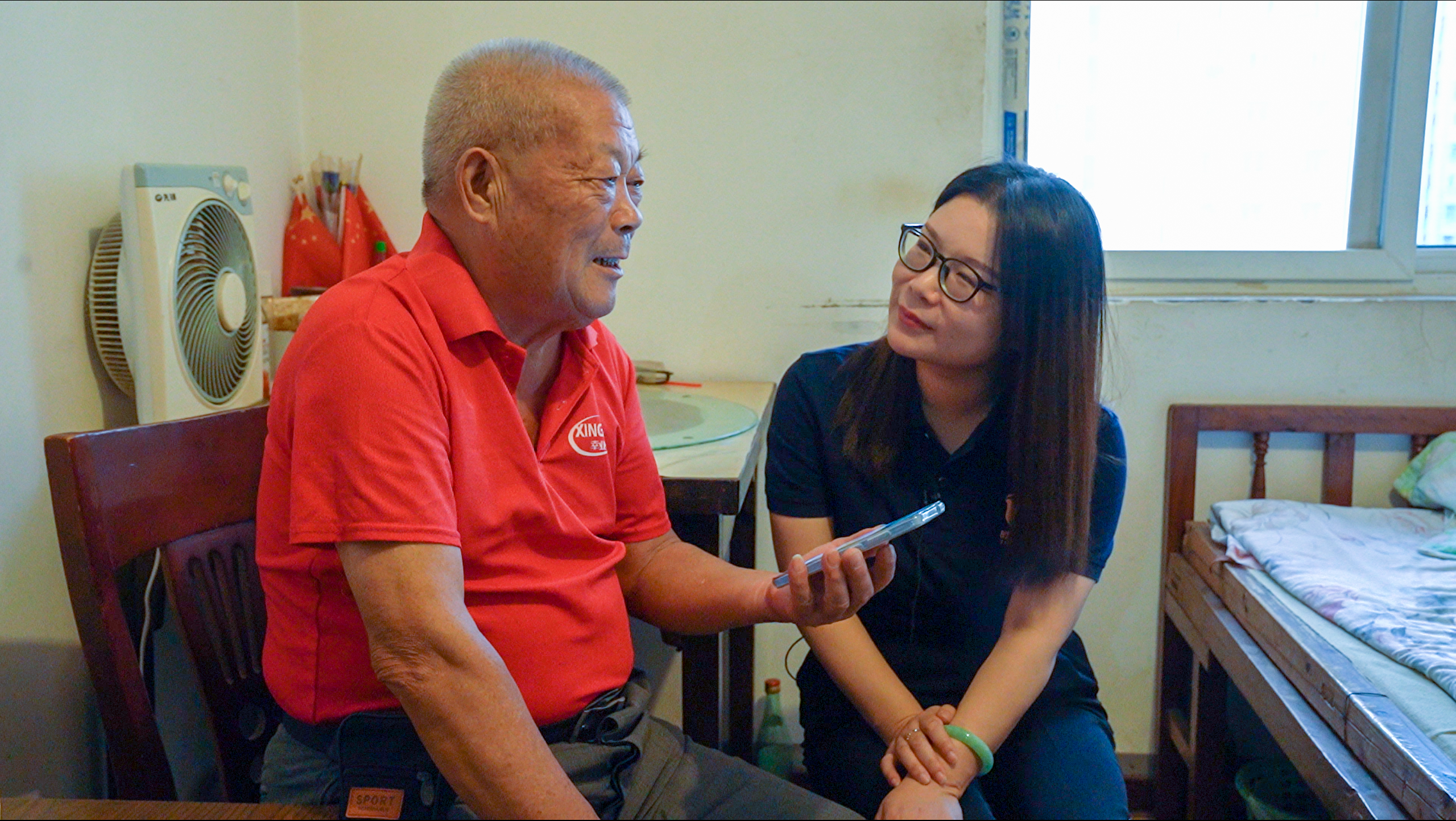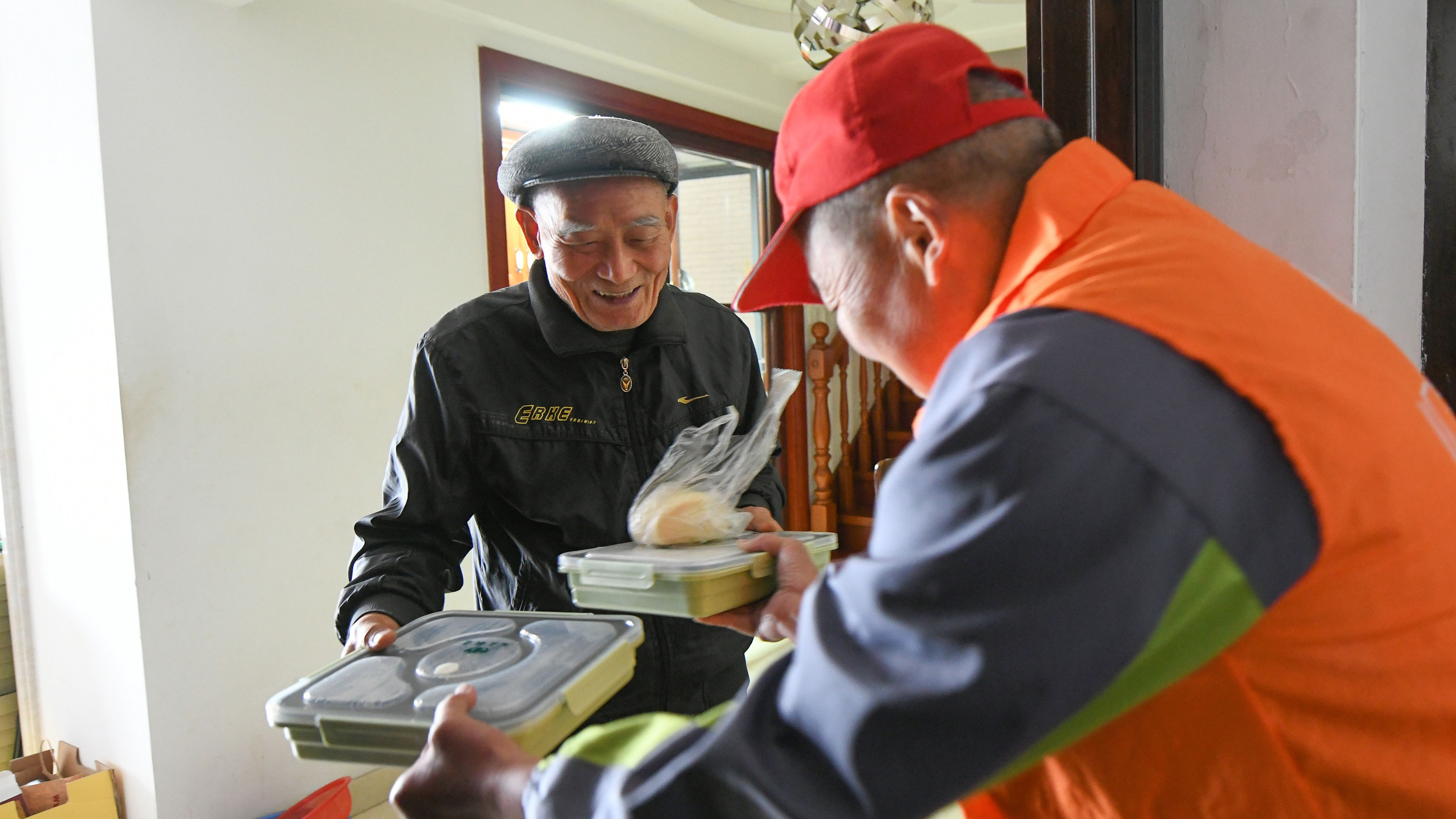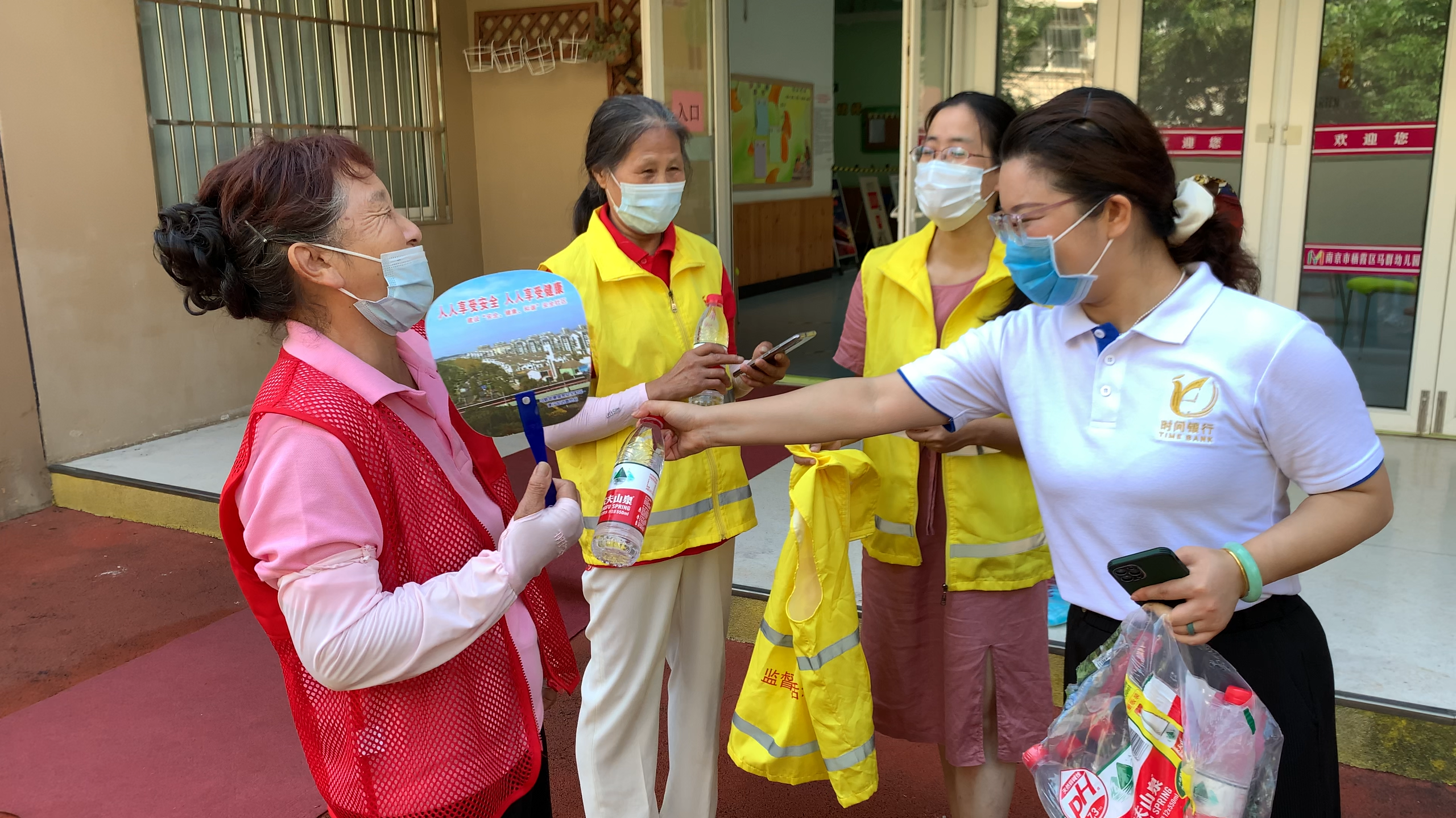
Shi Xiulian (R) teaches a senior resident how to use a smartphone in Wenkangyuan Community of Qixia District, Nanjing City, Jiangsu Province, China, September 25, 2022. /courtesy of Shi Xiulian
Shi Xiulian (R) teaches a senior resident how to use a smartphone in Wenkangyuan Community of Qixia District, Nanjing City, Jiangsu Province, China, September 25, 2022. /courtesy of Shi Xiulian
For some older residents in Nanjing City, east China's Jiangsu Province, getting access to elderly care services can be as simple as placing orders with a few taps on the phone.
Through the time bank function on the app of My Nanjing, volunteers take orders and provide nearly 30 kinds of visiting services ranging from a haircut and food delivery to dental care or psychological therapy.
When a service is delivered, instead of money, what volunteers earn are "time coins" that can be used to redeem similar assistance in the future. The number of coins they receive depends on how many hours they spend performing these tasks.
Shi Xiulian, director of the time bank fund management committee of China Aging Development Foundation, leads the team that created the time bank platform in Nanjing, the capital of Jiangsu Province.
"It started with a simple wish of helping out some elderly in our community in 2013," said Shi, who is also a college teacher.
Shi told CGTN that she never expected the pilot project to one day evolve into a national mutual-assistance platform with tens of thousands of volunteers.
Since its launch in 2019, over 60,000 volunteers have joined Nanjing's program, striving to build a more elderly-friendly city. This means a lot to a city whose average life expectancy exceeded 80 in 2021.
Every day, thousands of elderly people place orders on the platform. As of December 2022, more than 650,000 orders have been completed.
Shi attributed the program's success to the support of multiple departments of the Nanjing government. With the support of government policies, the program has gained the trust of citizens, Shi said, adding that over 11 percent of the platform's volunteers are aged 60 and above.
"The proportion of elderly volunteers is small because most of them still shoulder traditional responsibilities in the family, such as looking after grandchildren," said Shi. "But they are the most active group among all volunteers."

A time bank volunteer delivers food to an elderly resident's home in Shangcheng District, Hangzhou, Zhejiang Province, China, October 16, 2022. / CFP
A time bank volunteer delivers food to an elderly resident's home in Shangcheng District, Hangzhou, Zhejiang Province, China, October 16, 2022. / CFP
Beyond Nanjing
Like Nanjing, populations in most Chinese cities are getting older. Today, one in seven Chinese is over 65. As the elderly population in the country continues to grow, more caregivers are needed. To help relieve the burden of elderly care, many places are piloting similar time banking programs.
Professor Chen Gong, director of the Institute of Population Research at Peking University, told CGTN that time banking can be used to activate social participation in dealing with an aging population.
Chen's team has been following the development of time banking in China and did in-depth research on time banks in 20 provinces in 2021.
Regional differences in the level of development and the degree of aging call for different types of time banks, Chen said.
The idea of time banking was put forward by American scholar Edgar Cahn in 1980. In the past 40 years, the model has been implemented in over 30 countries, especially those with a large aging population, such as Japan, the United States, the United Kingdom and Australia.
The idea emerged in China around 2000, and cities such as Shanghai, Beijing, Nanjing and Guangzhou were among the first batch to pilot the model in communities. But it is only in the last few years that it has seen rapid growth with support from local governments.
Last June, Beijing launched a city-level time bank program for elderly care services. After being trained, every citizen older than 18 can earn one coin for every hour they spend caring for an older person. They can either redeem these when they turn 60, or give them to older family members. People who save 10,000 coins could have a spot in a state-run care home.
According to the China Time Bank Blue Book 2022, released last November, the government-led model has been explored in more cities across China, such as the northwestern city of Xi'an and eastern cities of Qingdao and Wuxi. Over 300,000 people have applied to join these programs.

Shi Xiulian (R) visits volunteers at a time bank service station in Qixia District, Nanjing, Jiangsu Province, China, May 11, 2021. /Courtesy of Shi Xiulian
Shi Xiulian (R) visits volunteers at a time bank service station in Qixia District, Nanjing, Jiangsu Province, China, May 11, 2021. /Courtesy of Shi Xiulian
Is it sustainable?
As China's birthrate continues to decrease in recent years, there are concerns about the sustainability of this cycle of goodwill.
"It needs time to tell whether a model is sustainable," Professor Chen said. "The development of the time bank in our country is still in its infancy, and we will keep observing its changes and characteristics."
To achieve the ideal goal of building a nationwide platform that allows everyone to deposit and withdraw their time currency, solving the credit issue of time banks is important, Chen said.
Chen said local governments could learn from each other and optimize their own time banking system according to their needs and local conditions.
Having over 50 universities and colleges, Nanjing has turned to the potential of students.
Shi's team created positions especially for college students, turning the time bank platform into a community where young people could put what they've learned into practice. At present, young people account for the biggest proportion, over 40 percent, of Nanjing time bank's volunteers.
Recently, volunteers can also place orders on the platform, displaying the skills and services they offer. The elderly can choose whether to accept the new services according to their needs.
"The platform promotes communication between generations and helps create a harmonious social atmosphere," said Shi. "Perhaps it could also prepare talents for the elderly care industry."